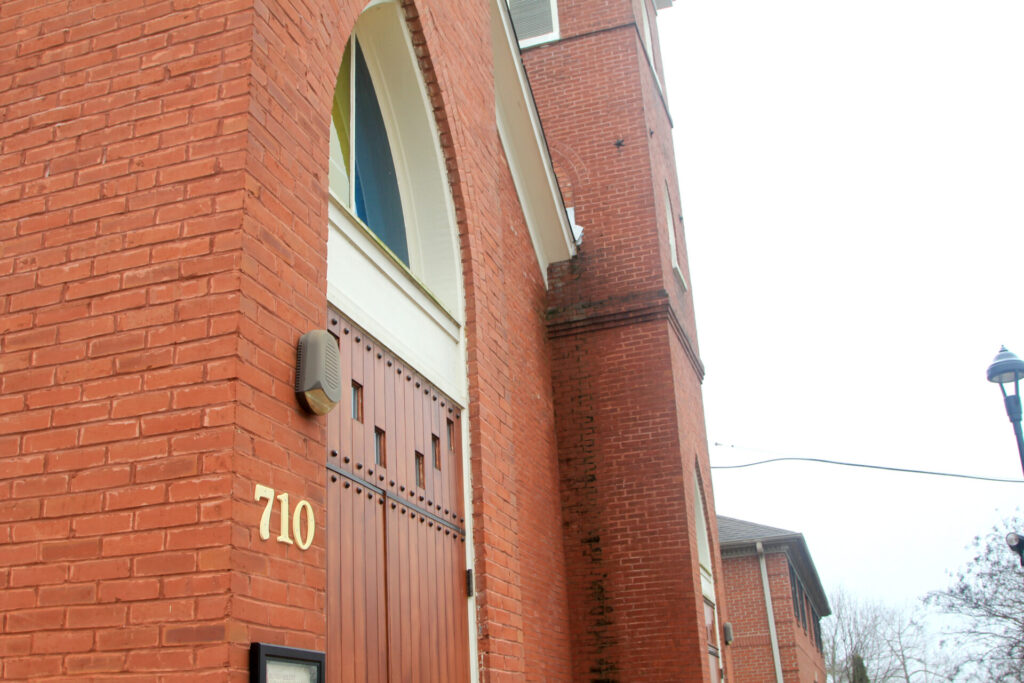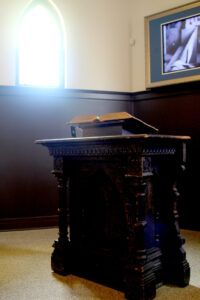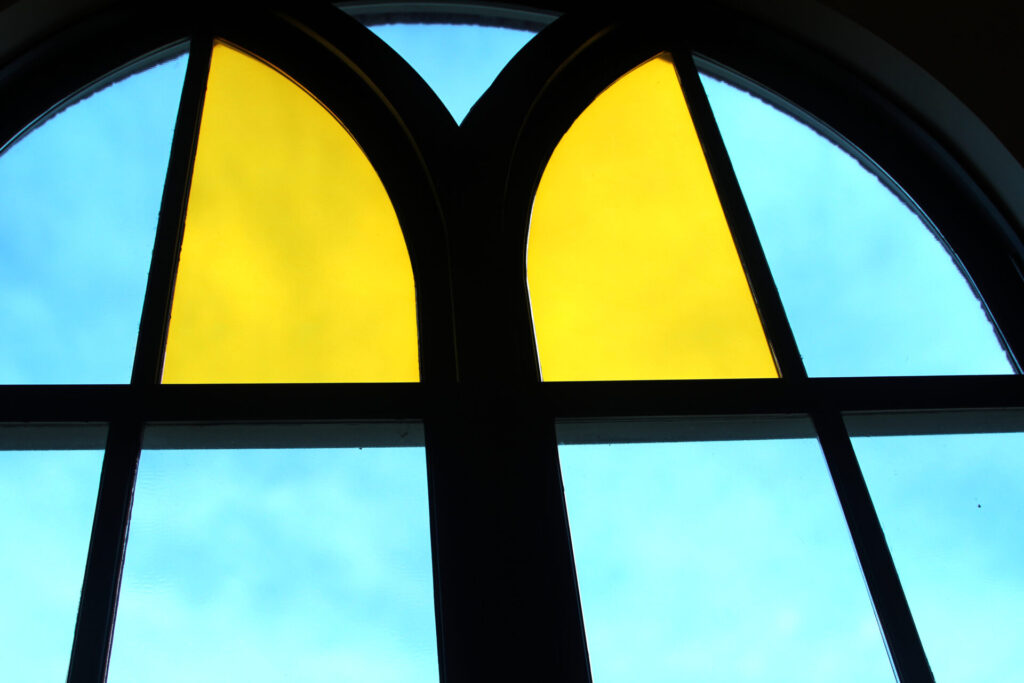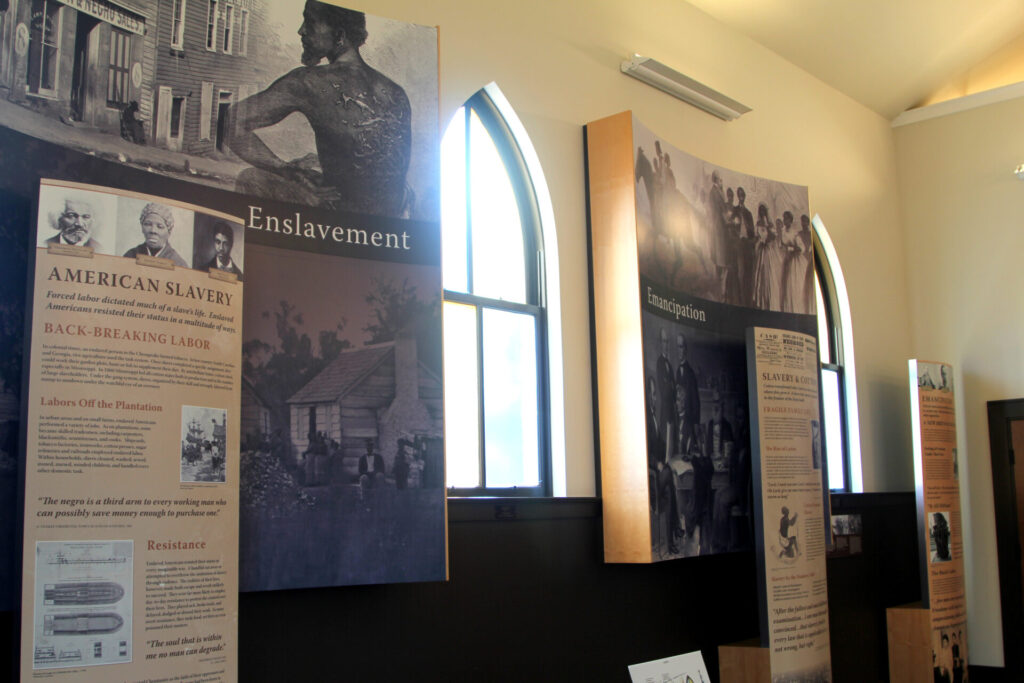Featured
Burns Belfry Church Represents Continued Fight for Racial Equality
By Anna Grace Usery
Editor-in-Chief
anna.grace.usery@hottytoddy.com
Until it takes on a purpose or meaning, salvation is only a word spouted from the pulpits by sinners. As the word begins to take shape, many find its feeling isn’t tangible. It’s as fleeting as faith.
A deep connection to salvation has especially been the case for black southerners throughout time. The local representation of longstanding faith, solitude and salvation is the towering Burns Belfry Church, located on 710 E. Jackson Ave. Originally named Burns Methodist Episcopal Church, it was settled by freed African Americans in an area of Oxford once known as Freedmen Town. Even after the false pretenses of Emancipation relinquished African Americans from slavery following the Civil War, it was a guarantee that salvation could still be found within the church.
The building as we know it today was erected in 1910, but its original congregation formed as early as 1868-70, according to research. In an exhibition entitled “’We Cannot Walk Alone:” Images and History of the African-American Community. Lafayette County, Mississippi.’ found in the Ole Miss Library archives, research shows Burns Methodist Church quickly produced a communal personality.

Pictured is the original brick affixed to the church in 1910. It still stands strong today. Photo by Anna Grace Usery.
“The original church was white frame with a light blue ceiling. In 1910, a new church was constructed on Depot Street through loans by members and donations of time to mix mortar and carry brick. The ladies brought dinner baskets to the working men,” the exhibition read.
“The church had a bell in the belfry and a foot-pedal organ. Two larger pot-bellied stoves provided heat. The Ladies Aid cared for the brass kerosene lamps hanging from ceiling chains which provided light.”
According to research, the church was a place of rejoicing — not only in the Lord but in each other.
“Church activities included box suppers, church plays, and ‘feasts in the wilderness.’ Boys carried girls to church in shiny buggies drawn by horses with fancy harnesses and a decorative buggy whip. At Sunday night services, customarily, the girl held the boy’s hat in her lap,” it read.
Until 1974, it filled the spiritual well of African Americans in Oxford to the fullest extent. The Burns Methodist congregation still exists today, but it branched off that year to move into a larger location more suitable for the congregation.
From that time until 2002, the church was used as office and storage space. For several of those years, it sat unoccupied and fell into a state of disrepair.
“It had just about fallen down,” said Jim Pryor of the Oxford-Lafayette Heritage Foundation. The Heritage Foundation is dedicated to the preservation, restoration and stewardship of the county’s historic environment, both manmade and natural. It includes building, cemeteries and other historical sites. Pryor and several others have led the charge in hopes of full restoration and preservation of the Burns Belfry church.
When community members began to say, “We should preserve this,” they discovered its final owner might have a similar vision. The man, who is well-versed in southern history and appreciation of the past, was John Grisham.
Strapped for funds and eager to take on a worthy preservation cause, Oxford Development Association president at the time, Susie Marshall, wrote Grisham an earnest letter of help. This would fulfill the Association’s mission to promote education and the improvement of the African American community in Oxford.
Marshall sought a miracle but didn’t have the specific nonprofit qualifications at the time to legally acquire the building. According to a previous Hottytoddy.com article, it wasn’t until the two groups joined forces that Grisham deeded the Heritage Foundation the property in 2002.
What came next would cost more than $1.4 million — a far cry from the original building’s cost of $3,000.
Going Through Phases
Though the infrastructure of the church all but crumbled, its mighty faith held strong. The groups evaluated the church’s needs and determined a structural overhaul was needed – what they later deemed Phase 1.
Pryor said the construction during this phase took place from the inside of the church out. The original brick—completely intact—actually saved the building from destruction because it bowed inward to create a tight lock. Though it bent, it did not break.
The first phase cost more than $419,000. Much of the money came through federal and state grants, but Pryor said the Lafayette community has also played a monetary part in the church’s renovation. New roof and wall structures were placed, reinforcements connected the building to the actual brick, and roughed-in plumbing was implemented.
“We tried to replicate everything like it used to be,” Pryor said.

Pictured is the original pulpit from the church built in 1910. Photo by Anna Grace Usery.
The quaint church boasts cream-colored walls with windows affectionately rounded at the top to create a look keen to royalty. The original (later recovered) bell still rings loudly in the foyer. The church’s inaugural mahogany pulpit stands proudly over its congregation.
Debate stirred when it came time to put colored film on the newly-installed, double-paned windows. When Pryor asked someone closely related to the church what color the panes used to be, she replied with conviction that they were red and blue. However, there was no photographic evidence to corroborate that. They searched the grounds for glass shards that might give them a clue. They even searched the old parsonage (it had been moved somewhere in the county after the church’s relocation) for any shred of evidence. It wasn’t until they surveyed the grounds that they found the “pinkish-red” shards of glass indicative of the original windows. The film that graces the windows now is yellow and blue, “but at night it shines that original pinkish color,” Pryor said.

At night, the Burns Belfry windows radiate pink and blue. Photo by Anna Grace Usery.
Phase one, which was just completed, also began the educational component of the museum. Panels depicting the general history of African Americans, from slavery and emancipation to the Civil Rights movement, explain in detail the hardships and elations African Americans faced throughout recorded history.
Darlene Copp, a Michigan transplant, compiled the historical components of the Burns Belfry, edited and designed them. An English and speech major in college, she said reading and understanding history came naturally to her. In her day job, she worked to strengthen the tourism efforts of Oxford. It wasn’t until she met a retired businessman who owned a home across from the LQC Lamar house that her passion for museum work began.
When the gentleman acquired grant money to renovate the house, Copp asked how she could help. She was immediately sucked into the information wormhole, spending most of her time reading and researching the man who became one the University of Mississippi’s first chancellors.
“After seeing my work in the LQC Lamar house, they (the Heritage Foundation) wanted me to do the panels in the Burns Belfry,” she said.

Panels currently in the museum document general African American history from slavery to emancipation to the Civil Rights Movement. Photo by Anna Grace Usery.
To complement the main panels, there will also be reader rails with local African American history peppered throughout the museum during phase two. To compile this history, she met with the people who worshipped in the church and listened to their stories.
“There were times when it was difficult to listen. It kind of tore you up,” she said.
The reader rails are expected to be installed by June 1.
Phase three includes collecting more local history. To do this, they are purchasing cameras, lighting and scanning equipment to display photographs, certificates, letters and legal documents digitally in the museum. This set up will be housed in the building adjacent to the church where the parsonage formerly stood.
“We want to document as much local history as we can,” Pryor said. “We may not be able to put everything in the museum, but we can display it all digitally.”
A Feeling of Safety
Cynthia Parham grew up in neighboring Abbeville but calls herself an Oxonian. As a young black girl in the 1960s, she remembers “tumultuous times” but said her parents shielded her from the brunt of the Civil Rights movement as it tiptoed its way through Mississippi. Her father worked on the Tombigbee River and her mother was a teacher, but their true identities laid in activism. They followed the lead of local activists like Della Davidson, a teacher whose name lives on in a local elementary school, to continue carrying the torch of equality.
“I’m just holding the torch. They are lifting it,” she said. “All the credit goes to them and it is up to us to continue it.”
She says the Burns-Belfry Museum and Multicultural Center is an accurate representation of that continued fight. When the building first opened to the public, it was filled with diversity “all in harmony,” she said. The church is not a destination, but a beacon of hope and reassurance that although the fight for civil rights continues, peace, safety and togetherness is evident in that space.
“We still have a long way to go, but that building represents who we can be,” she said.
Now, as president of the ODA, she is embodying the hardworking characteristics of former president Susie Marshall after she passed her the torch in 2007. Parham said she wants the church to be a safe haven for all the community, especially for African Americans. As the transition to collecting local history draws closer, she encourages the community to come forward to help document the history of their ancestors.
“The Burns Belfry should mean to the African American community that we have a place in the community, a sense of pride,” she said. “We don’t need to be ashamed to tell the stories that made our forefathers and mothers feel safe.”
As she reflects on her and her family’s experiences, she says she had the best tutelage in Oxford. When her parents would arrive safely home from marches, they told their children stories of hardship, grief and sometimes triumph. One common theme weaved throughout each story as emotions rose and fall, she said. They always ended in peace, and she carried that narrative into her adult life.
“My story will not go away,” she said. “It will be a legacy.”










































